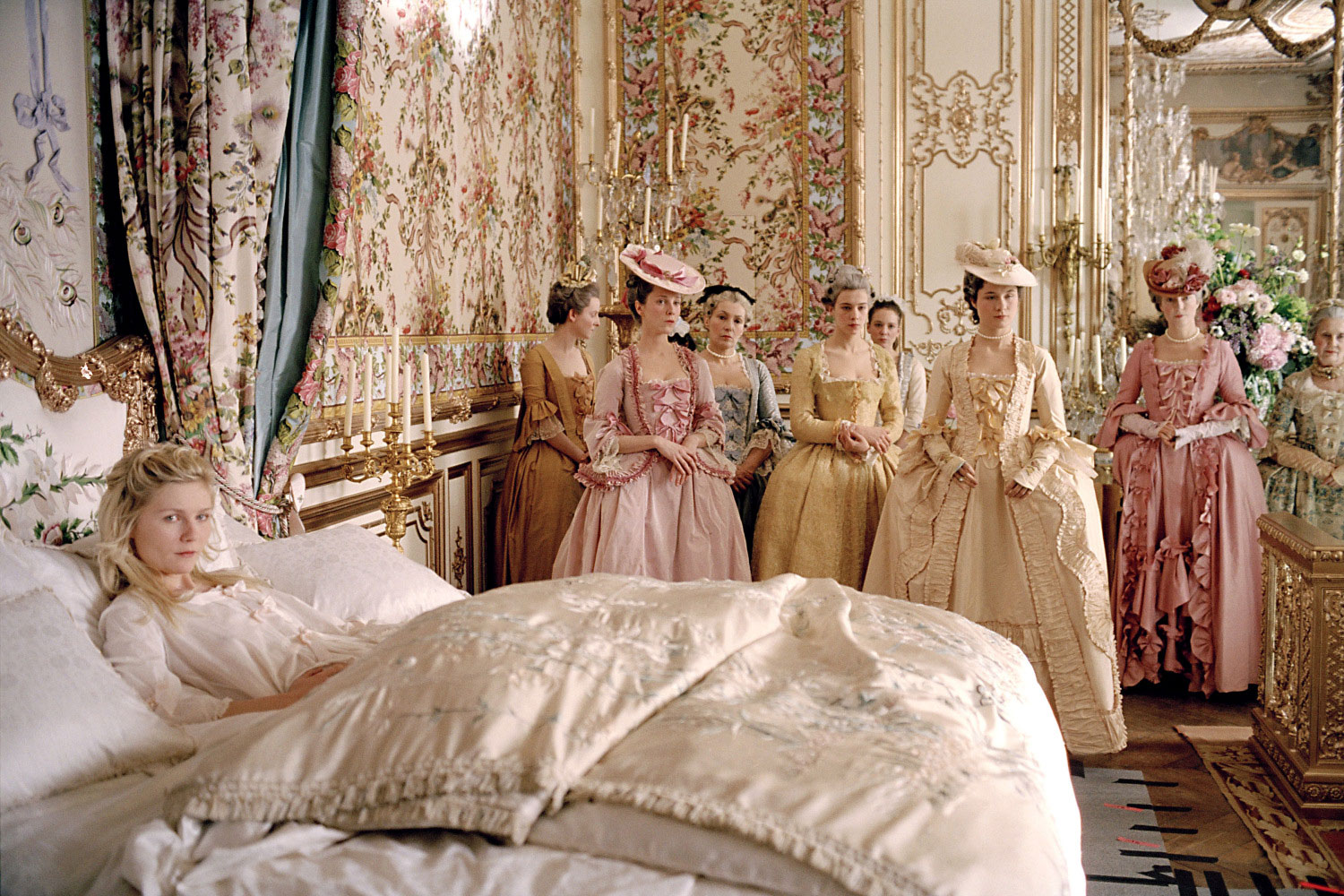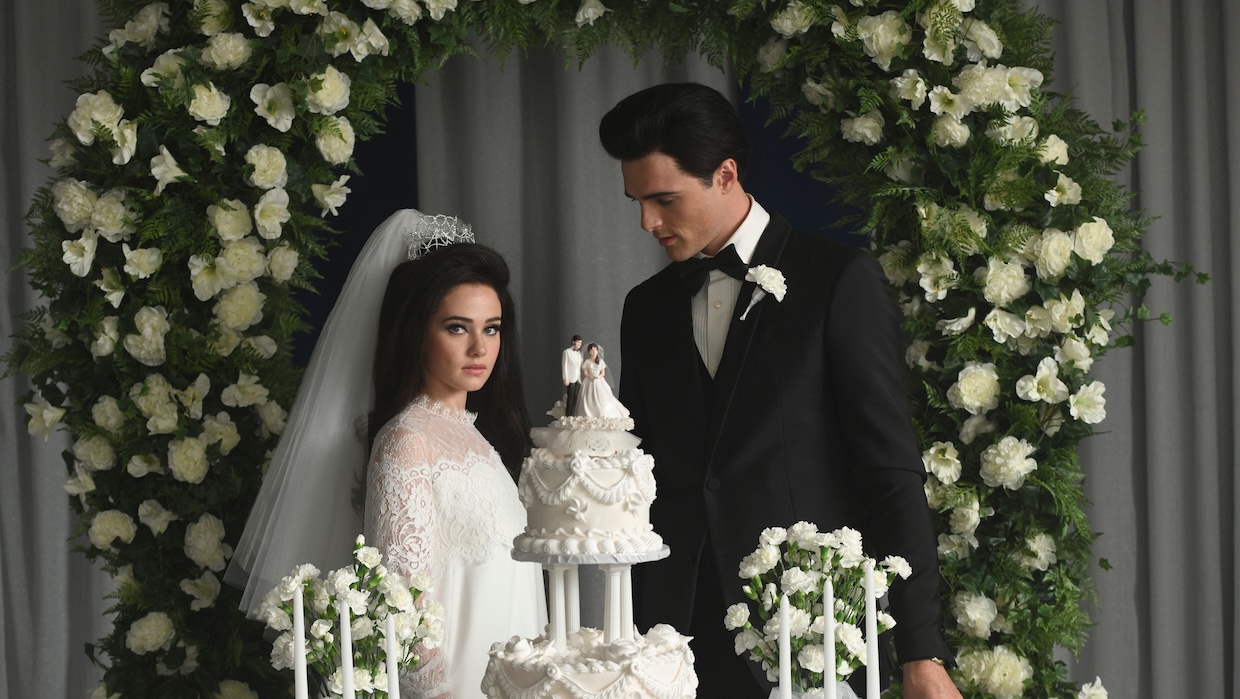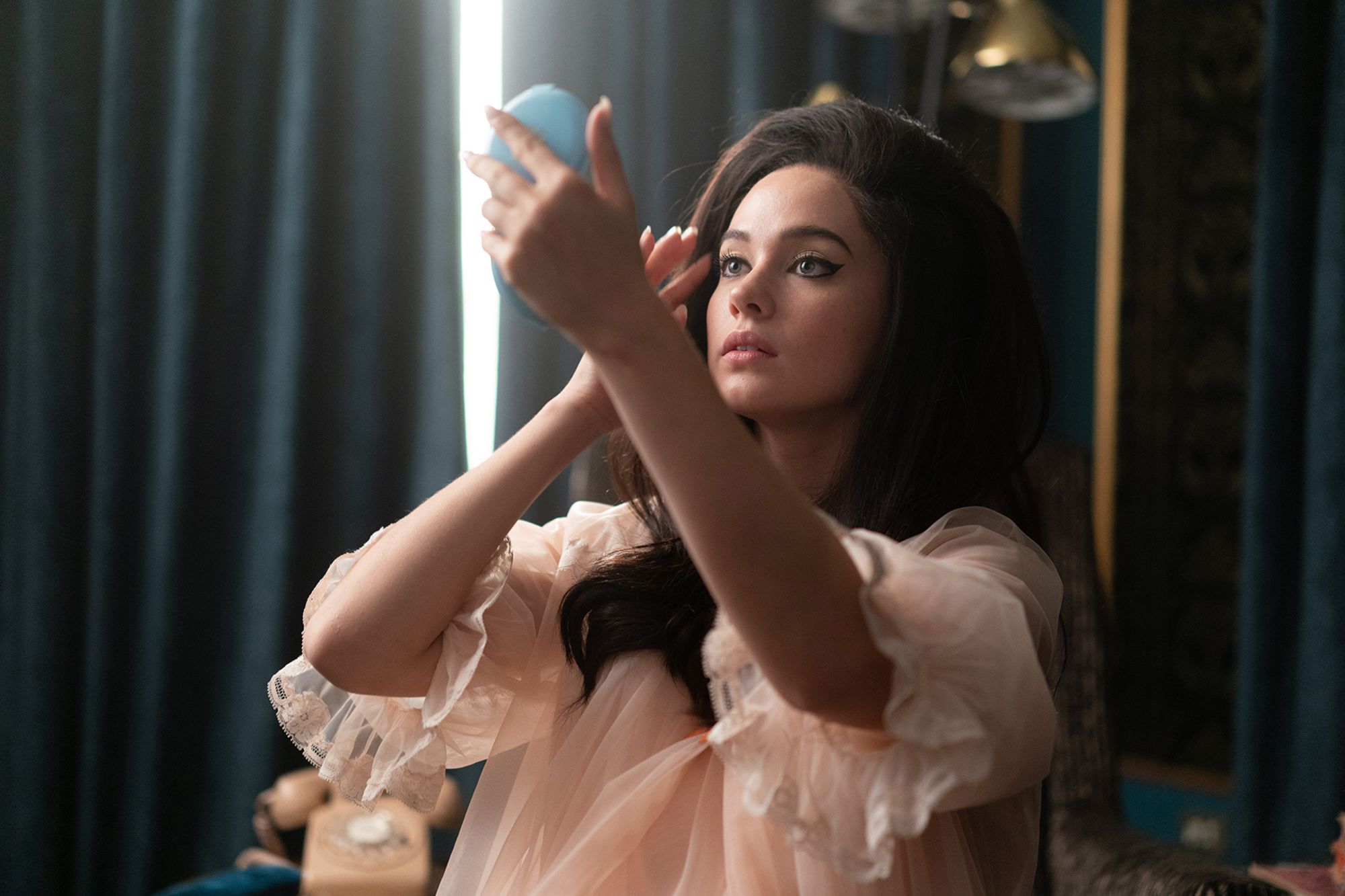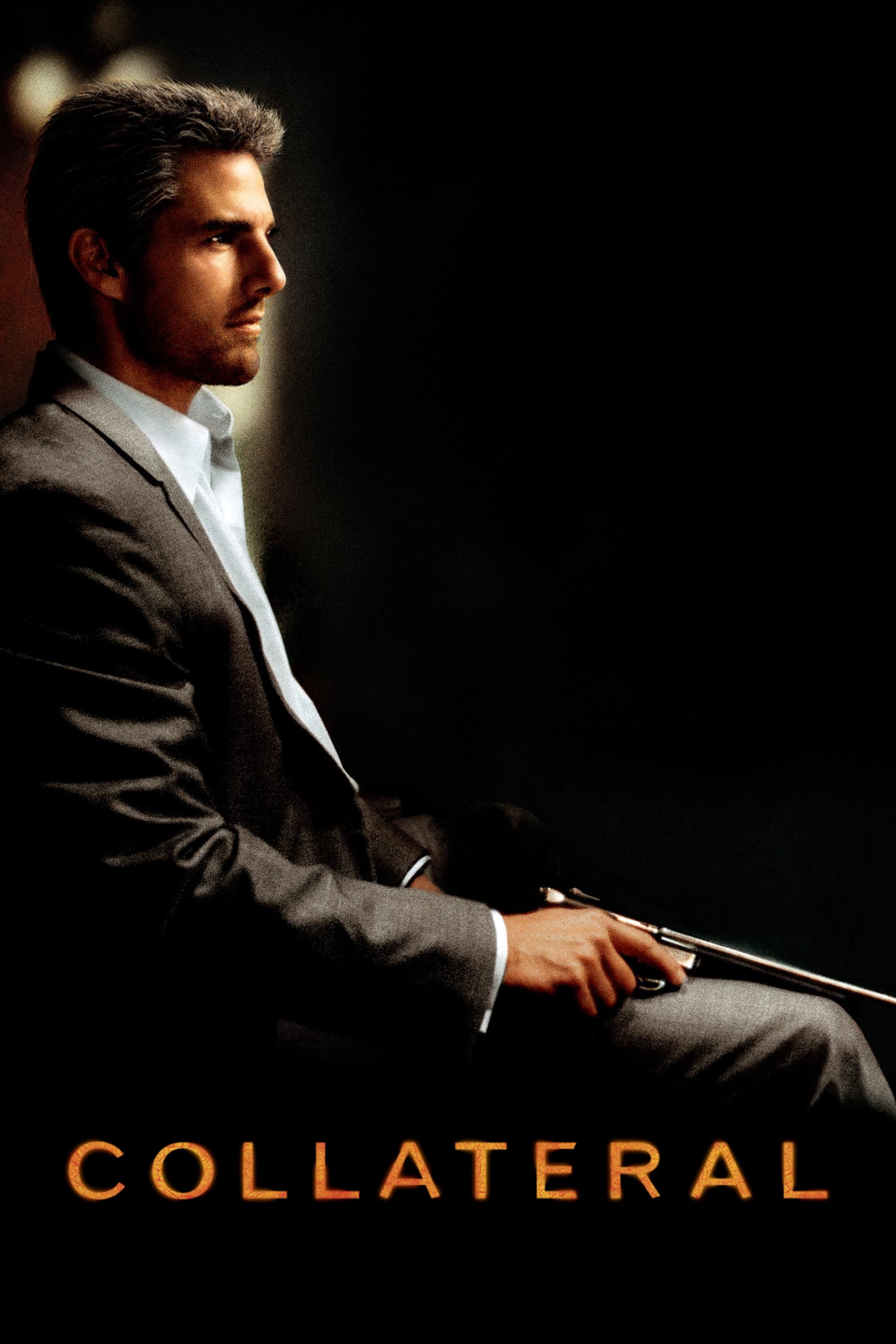Sofia Coppola’s new movie Priscilla is in many ways a spiritual successor to the divisive and underrated Marie Antoinette. Women’s roles in the world, and the ways in which the modern experience parallels the old, is not new territory for Coppola. She has carved out a subgenre for herself in which she depicts the inherent loneliness of being a woman in a world that only values them for external beauty, but she explores this subject in a way that not only feels like a hazy daydream, but is also never preachy. The audience doesn’t need to possess any knowledge of any person or history to appreciate these films, which is part of what makes her films feel artsy and yet accessible to more mainstream audience members. These subjects were explored in a more general sense in The Virgin Suicides and The Beguiled, while being touched on in Lost in Translation.
Coppola has always been interested in the interiority of the human beings she is depicting, not just the myth or the spectacle. It’s not about being an accurate impersonator, but rather capturing the essence of someone’s existence to the point where you don’t feel like you need to look up any additional information about said person to gain an understanding of them, even if said retelling is partially fictional. Kirsten Dunst and Cailee Spaeny add an intangible quality to these performances that can’t be written into the words on pages in a screenplay.
Frequent collaborator Kirsten Dunst is the perfect casting choice as the damned queen, conveying the inevitable helplessness of a young girl in this situation in a manner that few actors are able to. One of the only things people “know” about Antoinette is the alleged “let them eat cake” quote, which, according to the retelling, she didn’t actually say. On that note, it’s important to clarify that neither of these films are claiming to be some sort of untold history that you thought you know but really don’t, but rather a sort of absolution for women in history who are blamed for problems created by men; a thread that runs throughout the course of each film’s runtime.
In the beginning of Marie Antoinette, Antoinette is a fourteen year old Austrian girl plucked from her culture to be married off to Louis XVI of France. Suddenly, she is thrust into a culture that is deeply obsessed with superficiality and appearances. It’s hard to not feel some amount of empathy with the inevitable loneliness that a person in such circumstances would feel regardless of socioeconomic privilege. Speaking of which, this topic of this specific privilege that both women have isn’t discussed in depth, or even really at all, throughout each film, which I would ordinarily feel deserves criticism, but Coppola provides a clear understanding to so many other aspects of their existences that it can and should be overlooked in these instances.
As she is married off to soon-to-be-king, she is instantly expected to produce an heir to the throne, with very little consideration given to the fact that she is not only incredibly young, but in a foreign culture, surrounded by hardly any familiar faces. We soon discover that Louis XVI, played by Jason Schwartzman, does not seem interested in having sex with her, and it remains this way for much of the first half of the film. We never see or hear him being mocked or criticized for this, but we do hear other women talking about Marie behind her back about what she is apparently failing to do or what she could be doing to make herself more appealing to her husband.
This pattern of the woman being blamed for the issue of the man escalates into the diplomatic world conflicts touched on in the second half. Louis XVI is persuaded, rather comically easily, to send French troops to the American colonies to aid them in their revolution against England, citing that even though it would be extremely taxing on the country’s finances, it would make them appear incredibly strong in the face of England and assert France’s power to the rest of the world. It does get mentioned that Marie’s spending habits and lavish lifestyle that she has become accustomed to are rather expensive, what Louis is doing with sending troops to America is significantly more crippling to the nation’s economy than whatever Marie is doing. Yet, Marie is lambasted for the aforementioned “let them eat cake”, which is usually the only thing people think of when they hear Marie Antoinette’s name. Public tributes to her, such as paintings and statues, are desecrated, and while the general population’s frustration with their government is not only rational but absolutely justified, the anger towards Marie feels misplaced. Her husband’s diplomatic flexing is what was crippling France’s economy, not Marie’s lifestyle. The final fifteen minutes, which are particularly enrapturing, do not conclude with the beheading of Marie and Louis; instead, it ends with Marie calmly saying “I’m just saying goodbye”.
Priscilla continues a lot of these same ideas. The first act opens up in 1959, Priscilla Beaulieu is a fourteen year old girl, just like Marie Antoinette at the start of her respective film, living in Germany due to her father’s position in the U.S. military. The dreamy aesthetic that swarms nearly every interior scene greets us right away as white seeps in through every window, with Priscilla looking like the typical babe in the woods, which catches the attention of a man in the diner, who indicates to her that he is a friend of the mythically famous Elvis Presley.
Unlike Marie Antoinette’s relationship with Louis, Priscilla is undoubtedly attracted to Elvis, played by Jacob Elordi, and longs for him and it’s clear that she has fallen for his charms and good looks. Even though this is also somewhat arranged in a similar fashion, it isn’t quite as formal as the arrangement between Marie Antoinette and Louis XVI. Elvis reciprocates her infatuation, which is another key difference between the two films.
Right off the bat, people will probably be somewhat split on this film due to its unsympathetic and de-glamorized depiction of the internationally famous superstar. Elvis’s insecurities and fragile masculinity are on full display, something that we didn’t get to see in last year’s inept Elvis. Priscilla is not a notorious or infamous figure in history, but her perspective is still one that we aren’t privy too often when discussing Elvis Presley. The fact that she was just fourteen years old when they met is something that many aren’t aware of. As the film progresses, the rose-colored glasses are removed. Almost paradoxically, as Elvis’s physical presence for Priscilla becomes more and more infrequent, his insecurities become increasingly overbearing. Priscilla is frustrated by Elvis’s misogynistic handling of her understandable frustration over how obvious his infidelity is. Coppola doesn’t shy away from making the misogyny blunt and uncomfortable to watch, as Elvis is neglectful and emotionally abusive towards Priscilla.
Her frustrations with him mirror that of Marie Antoinette’s with Louis. Both women are thrust into deeply patriarchal relationships with powerful men, be it for superficiality or genuine attraction. Marie becomes more accepting of her relationship with Louis as the film progresses, even taking others advice on doing more to appear more attractive to Louis in an attempt to make her more irresistible to the male partner. Priscilla does the same, dying her hair and changing her overall aesthetic and style drastically to accommodate what Elvis would find attractive. Both women have been thrust into situations where their only value to the men and society around them is their attractiveness in the eyes of the powerful men they are involved with.
Despite the stories being set nearly two centuries apart, both women face the same problem of being reduced to such superficialities. The key difference between the two is that Marie Antoinette was never able to reclaim her own autonomy. Even though her story on the screen doesn’t end with her and Louis’s beheading, her life as she knew it, that of a daughter living with her family in Austria, ended at fourteen and never began again. In this way, Priscilla is a much more optimistic film, as she is able to reclaim her autonomy and live her life on her own terms, not those of powerful men.







No comments:
Post a Comment